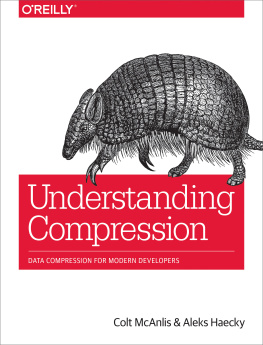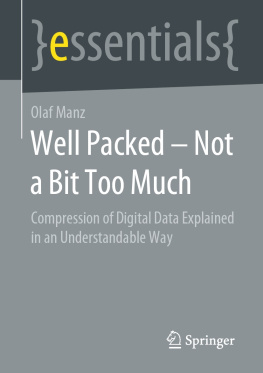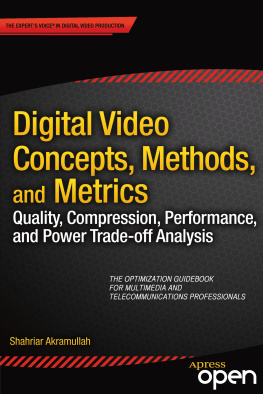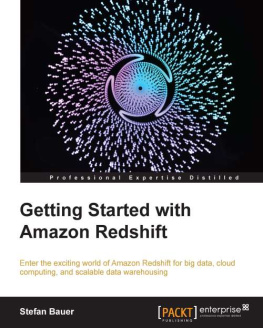Understanding Compression
by Colt McAnlis and Aleks Haecky
Copyright 2016 Colton McAnlis and Aleks Haecky. All rights reserved.
Printed in the United States of America.
Published by OReilly Media, Inc. , 1005 Gravenstein Highway North, Sebastopol, CA 95472.
OReilly books may be purchased for educational, business, or sales promotional use. Online editions are also available for most titles (http://safaribooksonline.com). For more information, contact our corporate/institutional sales department: 800-998-9938 or corporate@oreilly.com .
- Editor: Tim McGovern
- Production Editor: Melanie Yarbrough
- Copyeditor: Octal Publishing, Inc.
- Proofreader: Jasmine Kwityn
- Indexer: Ellen Troutman-Zaig
- Interior Designer: David Futato
- Cover Designer: Karen Montgomery
- Illustrator: Melanie Yarbrough
Revision History for the First Edition
- 2016-07-11: First Release
See http://oreilly.com/catalog/errata.csp?isbn=9781491961537 for release details.
The OReilly logo is a registered trademark of OReilly Media, Inc. Understanding Compression, the cover image, and related trade dress are trademarks of OReilly Media, Inc.
While the publisher and the authors have used good faith efforts to ensure that the information and instructions contained in this work are accurate, the publisher and the authors disclaim all responsibility for errors or omissions, including without limitation responsibility for damages resulting from the use of or reliance on this work. Use of the information and instructions contained in this work is at your own risk. If any code samples or other technology this work contains or describes is subject to open source licenses or the intellectual property rights of others, it is your responsibility to ensure that your use thereof complies with such licenses and/or rights.
978-1-491-96153-7
[LSI]
To AHS and GHS: I hoped youd learn to cook. Instead, you proved that humankind can survive on fresh apples and stale supermarket sushi.
Foreword
When I first began programming, I had no idea what data compression was nor why it mattered. Luckily, my Apple II Plus computer came with 0.000048 GB of memory (48 KB), which was quite a lot in 1979, and was enough to let me explore programming and computer graphics without realizing that my programs and data were constantly being compressed and decompressed behind the scenes in order to reduce their size in memory. Thanks, Woz!
After programming for a few years, I had discovered:
- Data compression took time and could slow down my software.
- Changing my data organization could make the compressed data smaller.
- There are a bewildering variety of complicated data compression algorithms.
This led to the realization that compression was not a rigid black box; rather, its a flexible tool that greatly influenced the quality of my software and could be manipulated in several ways:
- Changing compression algorithms could make my software run faster.
- Pairing my data organization with the right compression algorithm could make my data smaller.
- Choosing the wrong data organization or algorithm could make my data larger (and/or run slower).
Ah! Now I knew why data compression mattered. If things werent fitting into memory or were decompressing too slowly, I could slightly change my data organization to better fit the compression algorithm. Id simply put numbers together in one group, strings in another, build tables of recurring data types, or truncate fractions into integers. I didnt need to do the hard work of evaluating and adopting new compression algorithms if I could fit my data to the algorithm.
Then, I began making video games professionally, and most of the game data was created by not-so-technical artists, designers, and musicians. It turned out that math was not their favorite topic of discussion, and they were less than excited about changing the game data so that it would take advantage of my single go-to compression algorithm. Well, if the data organization couldnt be improved, that left choosing the best compression algorithm to pair up with all of this great artistic data.
I surveyed the various compression algorithms and found there were a couple of broad categories suitable for my video game data:
Lossless
Lossy
For text strings and binary data, I used LZ to compress away repeating duplicate data patterns. Pixel data went through lossy vector quantization (VQ) to map pixels to a color palette. Audio data went through lossy decimation and linear predictive coding (LPC) to reduce the bits per second. The output of any of those compressors could then go into a lossless Huffman compressor for additional statistical entropy compression, if the CPU was fast enough.
During the 1980s and 1990s, I worked on about 30 games, most of which used these compression algorithms along with simple data build tools that performed limited optimizations of the data organization.
But then, around the year 2000, the situation became more complex. There is an ongoing arms race between data generation tools and data display and analysis. The consequences have been software performance, storage size, network congestion, and the efficient pairing of compression algorithms with data organization.
This data flood has been partially offset by larger storage (Blu-ray discs, terabyte hard drives, cloud storage), faster multicore CPUs, new lossless compression algorithms such as BWT, ANS, and PAQ, as well as dramatic improvements in lossy codecs for image, video, and audio data. However, data sizes are growing faster each year and dwarf the slow improvements in network bandwidth, compression algorithm improvements, and storage capacity.
Which brings us to the present and why this book matters.
How can a programmer learn which algorithms to use on their data and which data changes will help or hinder a particular algorithm? What would really help is an overview of the major data compression algorithms to guide developers through the myriad choices now available. Most developers dont need to wade through all the theory and math details required to implement these algorithms; instead, they need a road map of the strengths and weaknesses of these algorithms, and how to take advantage of them for specific use cases.
Ive greatly enjoyed implementing, using, and watching the evolution of data compression algorithms over the past 37 years. I hope this book will help demystify data compression and provide a starting point for software engineers to learn about compression algorithms and help them make better software.
John Brooks, CTO, Blue Shift, Inc.
Preface
Data compression is everywhere, and its as utterly essential for modern computing as it was, when one megabyte was a lot, and data was transferred in kilobits per second. In a sense, we have come full circle, from antique computers with limited memory and bandwidth, to mobile devices with limited memory and costly data plans.








